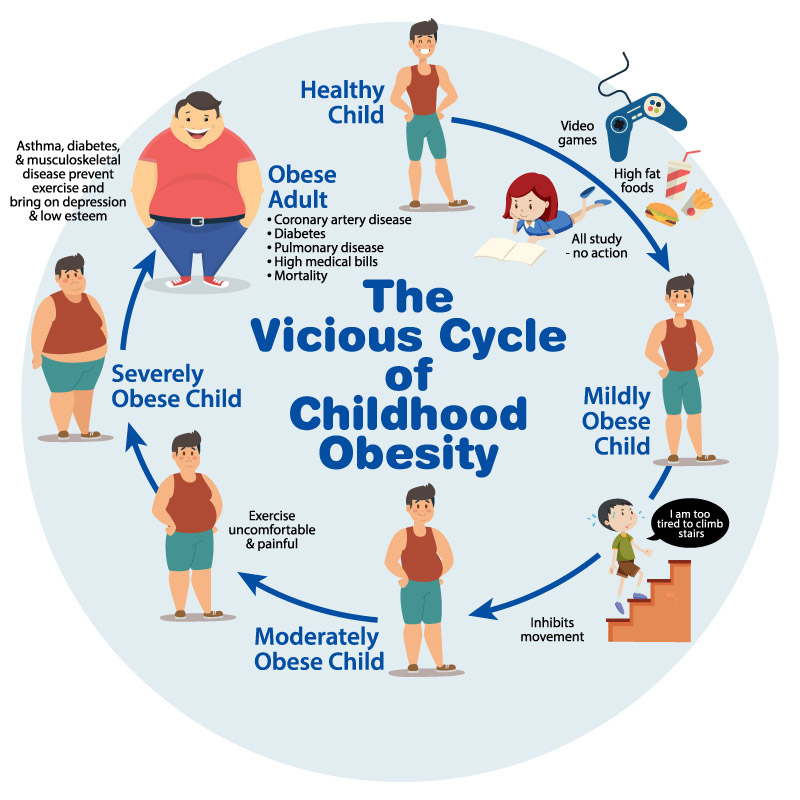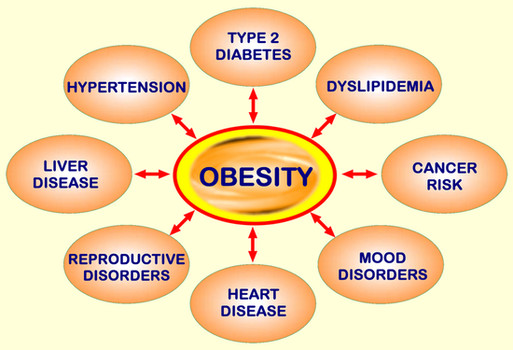“Obesity is very different from being overweight. Obesity involves the accumulation of excessive body fat, which is extremely abnormal, while being overweight simply means weighing more. The process of obesity is not a short-term occurrence; it happens due to the prolonged intake of excess calories without sufficient expenditure through exercise or physical activity.
The issue of obesity is on the rise globally, spreading like an epidemic and affecting a significant number of individuals. It is now considered an insidious killer contributing to preventable diseases such as heart disease and diabetes.
The increase in obesity numbers can be attributed to drastic changes in our lifestyle. Despite consuming the same foods as in the past decade, the results on our bodies differ. It’s essential to question whether our activity levels have remained the same. Are we still burning off those extra calories through regular workouts, walking, or other means?
Various myths circulate in society, with claims that previous generations consumed large amounts of oil, ghee, and sugar and yet remained fit. However, people in the past often engaged in regular physical activity, such as walking long distances for daily tasks. Today, our sedentary lifestyles contribute to the obesity epidemic.
Eating out used to be reserved for special occasions, but now, teenagers and adults often consume outside food daily. The quality of such food is questionable, and it’s crucial to be cautious about what we eat. Home-cooked food is the healthiest option, but even then, it’s essential to limit oil and ghee consumption.

The trend of relying on processed and packaged foods has increased due to the demands on working couples. Stress and the convenience of comfort foods contribute to higher calorie intake compared to fresh, home-cooked meals.
Observing our surroundings, we can see that 40-50% of the population is obese, and this percentage is rapidly increasing. Health professionals are actively working to spread awareness about the importance of being healthy and fit, as obesity raises the risk of various diseases.
It’s surprising that some individuals may not realize they are obese. Obesity comes with ongoing health issues like knee pain, lethargy, and tiredness, leading to more severe conditions like diabetes and high blood pressure. Those with a family history of obesity should be especially vigilant, and regular weight checks, along with monitoring body fat percentage, are crucial for everyone. The BMI (Body Mass Index) calculator is a useful tool for assessing obesity.
The BMI is an attempt to quantify the amount of tissue mass (muscle, fat, and bone) in an individual, and then categorize that person as underweight, normal weight, overweight, or obese based on that value.
BMI is calculated as weight in kilograms divided by height in meters squared (kg/m²):
- Underweight: <18.5
- Normal: 18.5-24.9
- Overweight: 25-29.9
- Obese: >30
You can calculate your BMI here : http://www.nhlbi.nih.gov/health/educational/lose_wt/BMI/bmicalc.htm
Don’t wait for your body to signal the presence of obesity through non-communicable diseases. Instead, take proactive steps to shed excess fat, feel energetic, and live a healthier life.

Obesity causeshttp://itsthemartins.com/risksofobesity/
Childhood Obesity
Childhood obesity is a concerning issue. While childhood is a period of growth, providing the right nutrition is essential. Parents often desire a chubby appearance for their children, associating it with health. However, a thin but active child is equally healthy. Weight is not the sole indicator of health.
Parents should weigh their child regularly, keep records, and encourage outdoor activities and sports to promote a healthy lifestyle. If a child is already obese, enrolling them in activity classes can help increase their activity levels and contribute to weight loss, leading to improved energy levels over time.
Calculate your child’s BMI here:
https://www.cdc.gov/healthyweight/bmi/calculator.html
As responsible parents, it’s crucial to monitor your children’s health. Today’s children are tomorrow’s future, and helping them grow healthy is more important than focusing solely on their weight. Children need their parents’ support to grow healthy, ensuring a brighter future for everyone.”
RD Neha Kava
Latest posts by RD Neha Kava (see all)
- Your Fitness Bucket List for 2024 - July 26, 2024
- 7 Home Workout Exercises for Stay-at-home Moms - July 25, 2024
- 7 Health Supplements Every Man Should Take - July 23, 2024




Your thnkinig matches mine – great minds think alike!
You actually make it seem so easy along with your presentation however I in finding this matter to be actually something that I believe I might never understand. It sort of feels too complicated and extremely wide for me. I’m taking a look forward on your next put up, I will attempt to get the dangle of it!